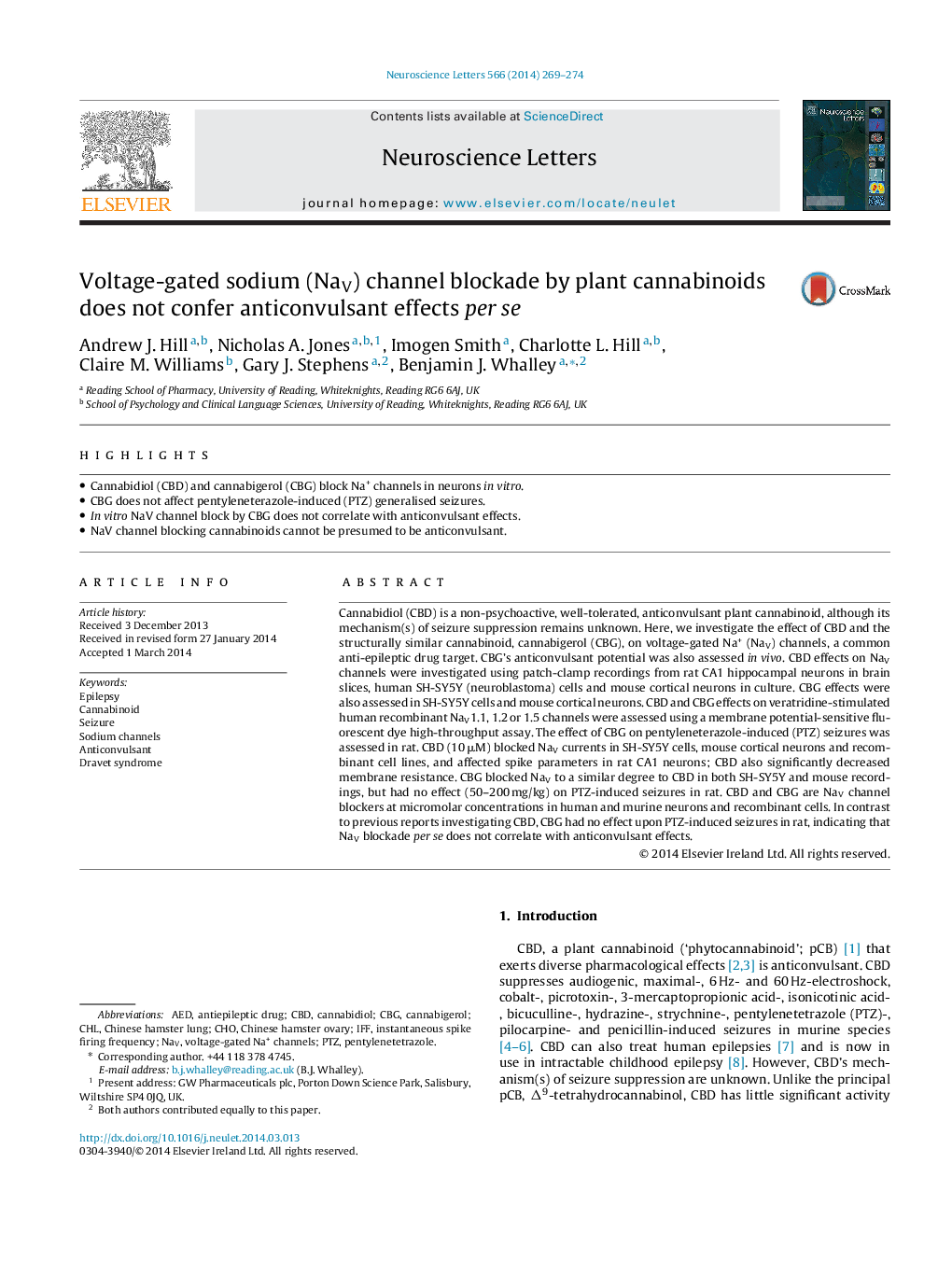| Article ID | Journal | Published Year | Pages | File Type |
|---|---|---|---|---|
| 6282192 | Neuroscience Letters | 2014 | 6 Pages |
Abstract
Cannabidiol (CBD) is a non-psychoactive, well-tolerated, anticonvulsant plant cannabinoid, although its mechanism(s) of seizure suppression remains unknown. Here, we investigate the effect of CBD and the structurally similar cannabinoid, cannabigerol (CBG), on voltage-gated Na+ (NaV) channels, a common anti-epileptic drug target. CBG's anticonvulsant potential was also assessed in vivo. CBD effects on NaV channels were investigated using patch-clamp recordings from rat CA1 hippocampal neurons in brain slices, human SH-SY5Y (neuroblastoma) cells and mouse cortical neurons in culture. CBG effects were also assessed in SH-SY5Y cells and mouse cortical neurons. CBD and CBG effects on veratridine-stimulated human recombinant NaV1.1, 1.2 or 1.5 channels were assessed using a membrane potential-sensitive fluorescent dye high-throughput assay. The effect of CBG on pentyleneterazole-induced (PTZ) seizures was assessed in rat. CBD (10 μM) blocked NaV currents in SH-SY5Y cells, mouse cortical neurons and recombinant cell lines, and affected spike parameters in rat CA1 neurons; CBD also significantly decreased membrane resistance. CBG blocked NaV to a similar degree to CBD in both SH-SY5Y and mouse recordings, but had no effect (50-200 mg/kg) on PTZ-induced seizures in rat. CBD and CBG are NaV channel blockers at micromolar concentrations in human and murine neurons and recombinant cells. In contrast to previous reports investigating CBD, CBG had no effect upon PTZ-induced seizures in rat, indicating that NaV blockade per se does not correlate with anticonvulsant effects.
Keywords
Related Topics
Life Sciences
Neuroscience
Neuroscience (General)
Authors
Andrew J. Hill, Nicholas A. Jones, Imogen Smith, Charlotte L. Hill, Claire M. Williams, Gary J. Stephens, Benjamin J. Whalley,
